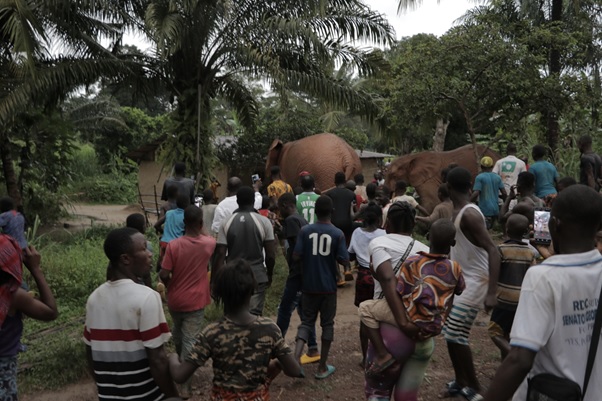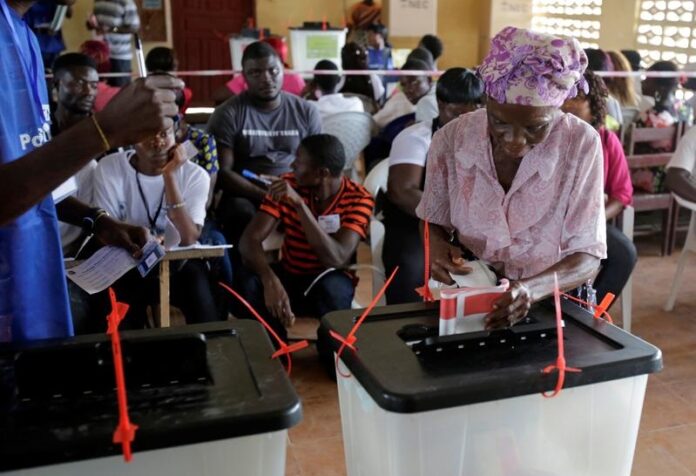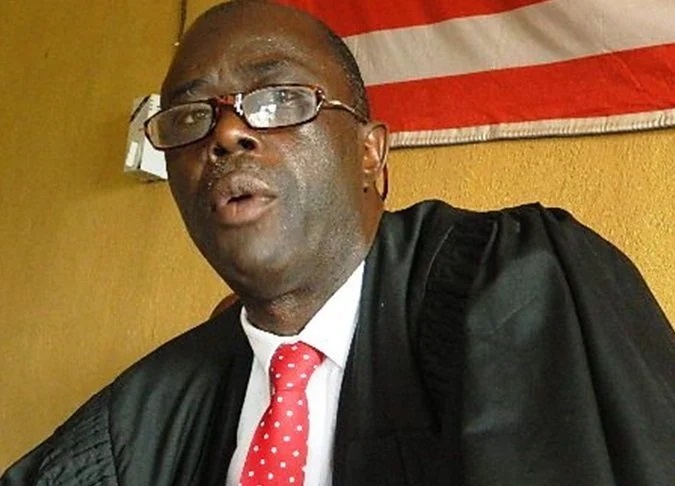By Mark B. Newa
Editor’s Note: This is the first of a series of stories on the human-elephant conflict in Liberia.
ZUIE, Gbarpolu – Villagers around the Proposed Foya Park first spotted elephants in the area around 2018. Some five years on, the elephants are destroying farms and posing a threat to the villagers’ existence.
“The elephants always come to our farm and eat the things that we are planting,” says Sam Jah, a farmer in Tardee village in the Zuie Chiefdom of Gbarpolu County. Jah had met a herd of the towering mammals while on his way to his farm on one morning last month. He fled for his life. When he returned the following day, the herds had eaten 30 of his palm trees.
“I am afraid for the remaining palm trees on the farm,” the 60-year-old father of five children tells The DayLight. Elephants eat grass, small plants, fruits, roots, bushes, branches and tree bark. The animals eat up to 169 kilograms (375 pounds) of vegetation daily. They used their tusks to carve into the trunk and tear off pieces of bark. Elephants spend nearly the entire day feeding on fruits and roots. Tree barks are their favorite food.
Jah’s neighbor Vannason Momo Vuyah lost plantain, rice, cassava and palm. “I am feeling bad, Vuyah says.
“They drink all of our water. “We are [compelled] to go far areas to draw water.”
Damaged crops and remnants of tree branches adorn Vuyah’s farm and other villagers’ farms. Plantain, rice and pineapple and shrubs lay bare, indicating the size of the herd of elephants. several palm fruits the elephants had chewed are visible. Cassava leaves and roots are scattered everywhere. From a hill overlooking one villager’s farm, a dozen elephant footprints line up the swamp around Bomagonjo Creek. Villagers say the creek never ran dry until the elephants, which drink between an estimated 26 and 55 gallons of water daily, arrived.
Six villages have been affected in the crisis, extending beyond Yanwayeh, a neighboring clan near the Liberian-Sierra Leonean border, villagers say. The elephants are threatening this year’s farming season, which starts in December and ends in May. With the elephant situation and two months to the close of planting, farmers fear a bad harvest.
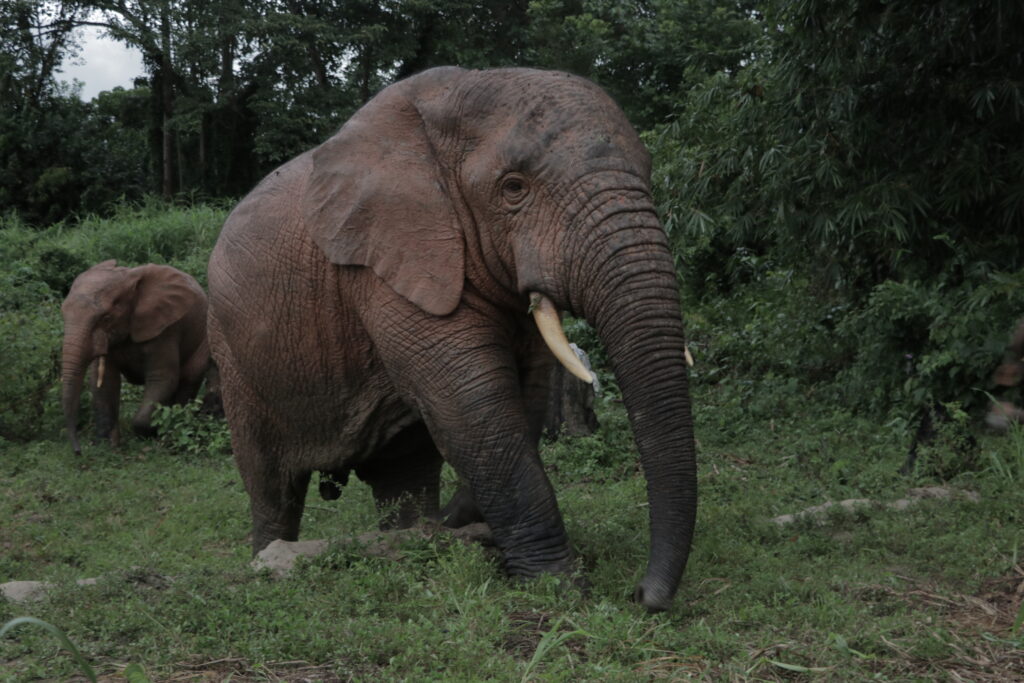
“When I pay the koo to work on my farm, the elephants will disturb the workers and all of them will run back to town,” says Varney Sheriff, a farmer with four children from Gongodee village. “No one wants to be attacked by the elephants.” A koo is a cooperative of farmers. A number of farmers can form a koo or hire one.
Hawa Jah, a mother of six children and five grandchildren from Senkpen village, is worried. “Let the government people help us with food. The elephants are not giving us chance to make our farm to support our families.”
“We are not making farms as we used to do. We can only go there to do small work and come to the village. People in this town have refused to go on my farm to work because of the elephant’s business,” said Varney Sheriff.
Sheriff and others have tried different methods to drive away the herd. They clang pots, hit hollow sticks on tree roots and blow horns. They even burn peppers to scare away the elephants. But none has worked.

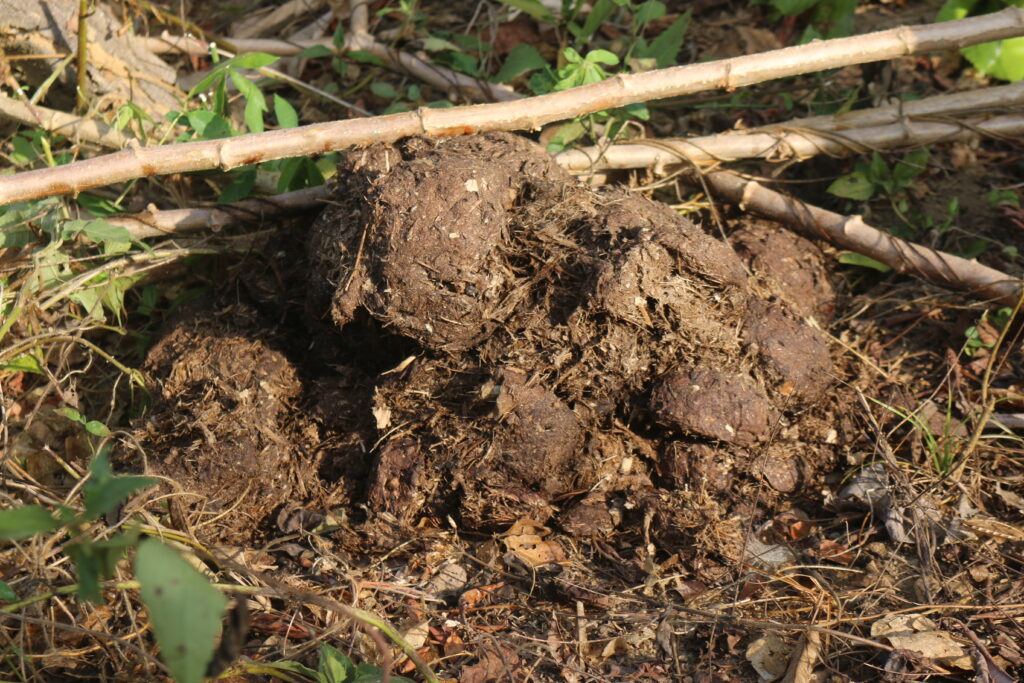
The situation has changed the way of farming in the area, the main source of livelihood for villagers. Due to the elephants, people are not producing sufficient food, negatively impacting the villagers’ lives in many ways. It is expensive to transport foodstuff and other commodities from Monrovia to Kongbor. Twenty-five kilogram of rice sells for LS$4,000, nearly twice the price of the commodity in Monrovia.
McGill Washington, who works in the Office of the District Commissioner, says local authorities and Forestry Development Authority (FDA) are aware of the situation but they are yet to respond. “We are asking the government and other people to come and build a fence for the elephants, they know how to control them… to put them in the park,” Washington tells The DayLight.
Root causes
Zuie is close to the proposed Foya Park, which covers 164,000 hectares of forestland between Gbarpolu and Lofa. The population of elephants in the region is approximately 350 to 450, according to a German-based conservation group, the Future for Elephants. The figure is about a quarter of the country’s elephant population. Villagers hunt, farm and mine on the fringes of the rainforest. Years of poaching for ivory, and loss of habitat, have left the African forest elephants (Loxodonta cyclotis) critically endangered.
In Kongbor, where people in Zuie conduct their businesses, a local radio announcer makes an announcement. “No one should attack the elephants,” it goes, repeated in Gola, Belleh and Mende, the languages spoken in the region. “The animals are protected by law,” it adds. It is a reference to Liberia’s wildlife law, which imposes a prison term between two and four years or a US$5,000 to US$10,000 fine.
The farmers believe that a ban on hunting elephants has swelled their population, leaving them in search of food everywhere. Experts, however, blame people for the situation, known as the human-elephant conflict.
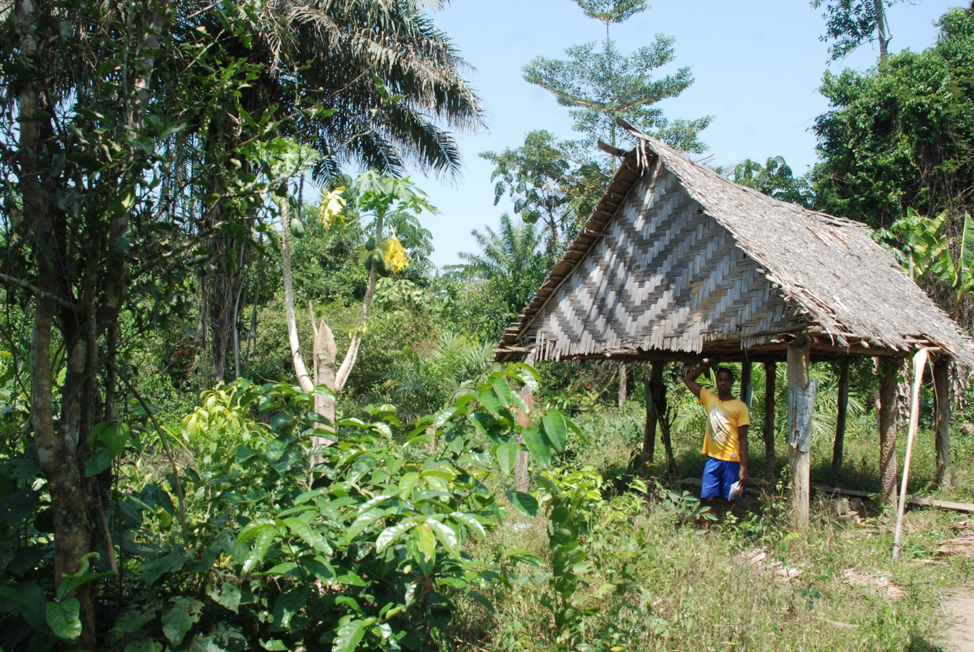
“When the villagers are making farms on the elephants’ tracks, we will see them appearing,” says Raymond Kpoto, a field supervisor of the Society for the Conservation of Nature Liberia (SCNL). “When the elephants passed in a place, after more than 10 to 15 years… and their tracks are destroyed, they roam the forest to identify their tracks.”
Facts back Kpoto’s comments. Gbarpolu accounts for 111,000 hectares of tree cover loss between 2001 and 2021, according to the Global Forest Watch. It is the fifth county in Liberia with the largest tree cover loss. Tree cover loss takes place when human and natural causes, including fire, destroy the forest.
Saah David, National Coordinator, Reducing Emissions from Deforestation and Forest Degradation within the FDA, agrees with Kpoto. He says the elephants were reclaiming their territory.
“The area is their own terrain and when they move about, farms will be affected and even humans will be affected,” David adds.
David says the Liberian government will support affected villagers.
“When these animals become a risk to the survival of our people who live on the fringes of the forest, then, we must find a way to avoid animal-human conflict,” David tells The DayLight. “Such compensation will in no way give farmers the equivalence of destruction done on their farms by wild animals.” Source: thedaylight.org


